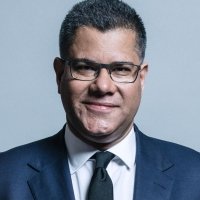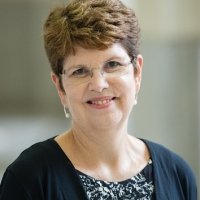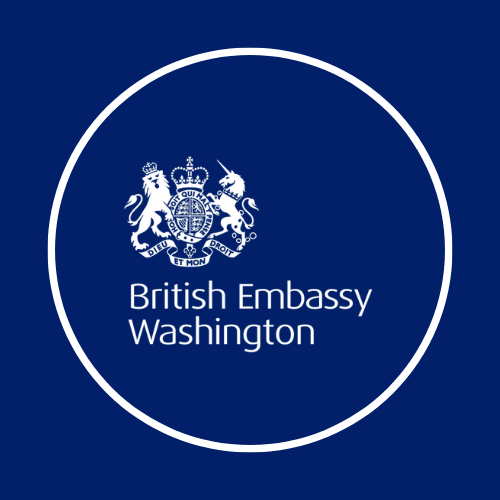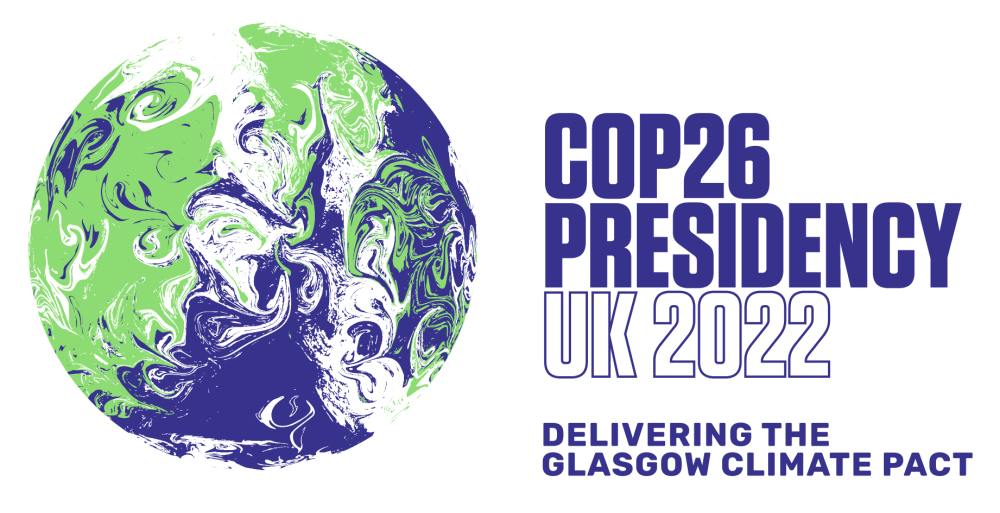COP President Alok Sharma: Looking Back and Stepping Forward
Submit a question
In advance of the 27th UN Climate Change Conference (COP27), and as the UK's COP Presidency enters its final weeks, the Wilson Center, in partnership with the British Embassy, Washington D.C. was proud to host COP26 President Alok Sharma.
On the heels of his trip to the Democratic Republic of the Congo and Kenya and ahead of COP27, Sharma, who is also a British Cabinet minister, reflected on how climate change—and responses to it—are reshaping our world, and how the global community can collaborate more effectively to forge the path ahead for climate action.
Sharma's speech was followed by a conversation on the achievements and challenges of COP26, his experience leading the negotiations, and what the next steps are in the global effort to act on climate change.
Selected Quotes
COP President Alok Sharma
"It is possible to take on multiple challenges, and to succeed, even in the most challenging times. And indeed, as many climate vulnerable countries have been recognizing for some time, we no longer have the luxury of choice. We have to try and do this simultaneously."
"Today, climate must be at the heart of everything that we do. The world cannot afford for such institutions to be cautious in how their considerable resources are deployed to tackle the climate crisis. That, I think, is a matter of social justice as well as environmental security."
"We have to incentivize every aspect of the international system to recognize the systemic risk of climate change, and to make managing it effectively a central task. Whether that’s multilateral development banks or the private sector. Central banks or investment banks. Regulators or credit rating agencies. Finance ministries or philanthropies. There is frankly no logical reason why every single one of those institutions should not be adapting, to making tackling the climate crisis a fundamental part of their overall purpose."
"I am certain that, if we can align all of the work that I have seen and that I have talked about today, and adapt the systems that underpin it, the 21st century will not just be the century we pulled the world back from the precipice of climate catastrophe, it will be the century we unlocked a just and sustainable path to prosperity for billions of people around the world."
Ambassador Mark Green
"Climate change and climate extremes are really beginning to upend nearly every aspect of modern life and the international order. From disrupting food security and economic opportunity to spurring conflicts over limited resources, to driving human displacement to record heights, many of our foreign policy challenges have been made much more complex and new ones are rapidly emerging."
"As we rush to deal with the immediate devastation left from hurricanes like Ian, and floods like those in Pakistan, we have to look ahead and bring a clear-eyed analysis to broader trends and longer-term threats."
"To meet the challenges of climate change, new waves of diplomacy will need to raise climate ambition, promote new, more dynamic methods of multilateral collaboration, and find new paths forward towards a cleaner energy future."
Speaker

Introduction

Moderator

Hosted By

Environmental Change and Security Program
The Environmental Change and Security Program (ECSP) explores the connections between environmental change, health, and population dynamics and their links to conflict, human insecurity, and foreign policy. Read more


Global Europe Program
The Global Europe Program is focused on Europe’s capabilities, and how it engages on critical global issues. We investigate European approaches to critical global issues. We examine Europe’s relations with Russia and Eurasia, China and the Indo-Pacific, the Middle East and Africa. Our initiatives include “Ukraine in Europe”—an examination of what it will take to make Ukraine’s European future a reality. But we also examine the role of NATO, the European Union and the OSCE, Europe’s energy security, transatlantic trade disputes, and challenges to democracy. The Global Europe Program’s staff, scholars-in-residence, and Global Fellows participate in seminars, policy study groups, and international conferences to provide analytical recommendations to policy makers and the media. Read more


Africa Program
The Africa Program works to address the most critical issues facing Africa and US-Africa relations, build mutually beneficial US-Africa relations, and enhance knowledge and understanding about Africa in the United States. The Program achieves its mission through in-depth research and analyses, public discussion, working groups, and briefings that bring together policymakers, practitioners, and subject matter experts to analyze and offer practical options for tackling key challenges in Africa and in US-Africa relations. Read more


Canada Institute
The mission of the Wilson Center's Canada Institute is to raise the level of knowledge of Canada in the United States, particularly within the Washington, DC policy community. Research projects, initiatives, podcasts, and publications cover contemporary Canada, US-Canadian relations, North American political economy, and Canada's global role as it intersects with US national interests. Read more


China Environment Forum
China’s global footprint isn’t just an economic one, it’s an environmental one. From BRI investments in Africa and Asia to its growing presence in Latin America, understanding China’s motivations, who stands to gain - and who stands to lose - is critical to informing smart US foreign policy. Read more


Kennan Institute
The Kennan Institute is the premier US center for advanced research on Eurasia and the oldest and largest regional program at the Woodrow Wilson International Center for Scholars. The Kennan Institute is committed to improving American understanding of Russia, Ukraine, Central Asia, the South Caucasus, and the surrounding region through research and exchange. Read more


Kissinger Institute on China and the United States
The Kissinger Institute works to ensure that China policy serves American long-term interests and is founded in understanding of historical and cultural factors in bilateral relations and in accurate assessment of the aspirations of China’s government and people. Read more


Latin America Program
The Wilson Center’s prestigious Latin America Program provides non-partisan expertise to a broad community of decision makers in the United States and Latin America on critical policy issues facing the Hemisphere. The Program provides insightful and actionable research for policymakers, private sector leaders, journalists, and public intellectuals in the United States and Latin America. To bridge the gap between scholarship and policy action, it fosters new inquiry, sponsors high-level public and private meetings among multiple stakeholders, and explores policy options to improve outcomes for citizens throughout the Americas. Drawing on the Wilson Center’s strength as the nation’s key non-partisan policy forum, the Program serves as a trusted source of analysis and a vital point of contact between the worlds of scholarship and action. Read more


Maternal Health Initiative
Housed within the Wilson Center's Environmental Change and Security Program, the Maternal Health Initiative (MHI) leads the Wilson Center’s work on maternal health, global health equity, and gender equality. Read more


Mexico Institute
The Mexico Institute seeks to improve understanding, communication, and cooperation between Mexico and the United States by promoting original research, encouraging public discussion, and proposing policy options for enhancing the bilateral relationship. A binational Advisory Board, chaired by Luis Téllez and Earl Anthony Wayne, oversees the work of the Mexico Institute. Read more


Middle East Program
The Wilson Center’s Middle East Program serves as a crucial resource for the policymaking community and beyond, providing analyses and research that helps inform US foreign policymaking, stimulates public debate, and expands knowledge about issues in the wider Middle East and North Africa (MENA) region. Read more


Science and Technology Innovation Program
The Science and Technology Innovation Program (STIP) serves as the bridge between technologists, policymakers, industry, and global stakeholders. Read more


